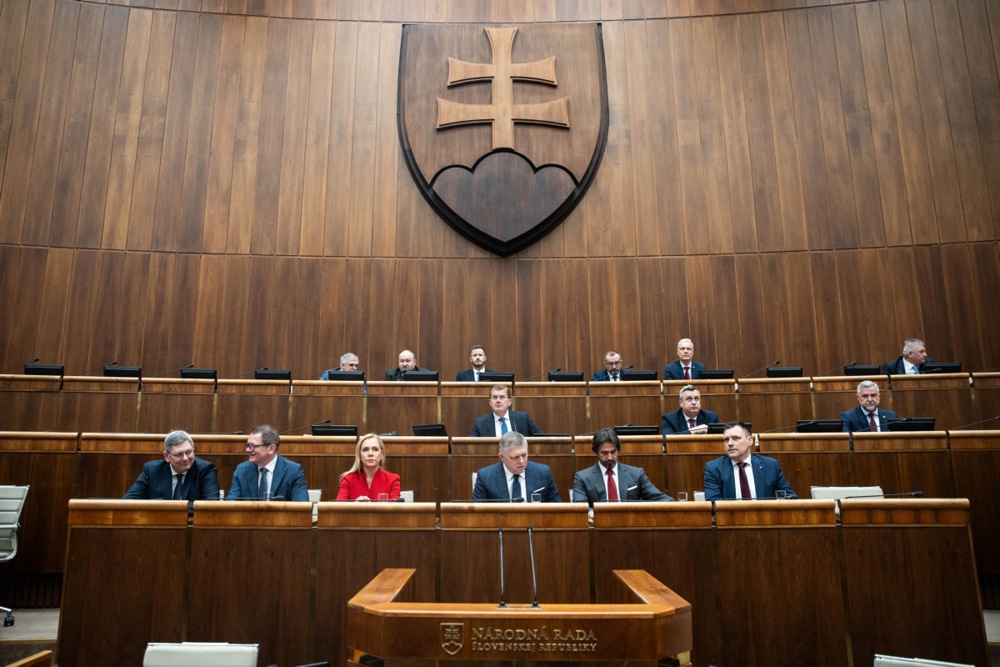European institutions are undergoing a “structural transformation” in the way sex and gender are understood in law and governance.
That is according to a new policy report published by the Austrian-based think-tank Athena Forum titled Beneath the Surface: How Gender Identity is Reshaping Europe.
It argues that the shift from biological sex to self-defined gender identity has led to the erosion of long-standing sex-based rights across the continent.
Produced with support from the UK campaign group Sex Matters, the report calls for “clarity, evidence and democratic accountability” in European policymaking.
It warns that a marked ideological shift has taken hold within Europe’s institutions, mirrored in the changing language, priorities and culture of policymaking.
Athena Forum’s founder and director Faika El-Nagashi, a former Austrian MP, and co-author Anna Zobnina, a feminist policy specialist, say gender identity frameworks have been integrated into European Union and Council of Europe (CoE) policies largely “behind closed doors”.
They contend that new norms are being introduced through “soft law” instruments such as guidelines, strategies and recommendations, rather than through open legislative debate.
“We have watched the meaning of woman, the clarity of law and the basis for sex-based rights erode under the weight of ideological capture,” the authors write.
“This shift is not just linguistic; it is structural, altering how institutions understand rights, allocate resources and distribute power.”
The report traces the spread of gender identity language from the Yogyakarta Principles of 2006 – a non-binding international framework on sexual orientation and gender identity – to European human-rights and equality mechanisms.
It highlights the role of the EU Fundamental Rights Agency, the European Institute for Gender Equality and the Council of Europe’s SOGIESC Unit in embedding these definitions into policy and professional training.
Groups receive tens of millions of euros in funding from EU programmes, philanthropic foundations and international donors.
With their extensive advocacy, training and litigation work, they have become central to shaping policy norms in Brussels and Strasbourg.
According to the authors, these developments have blurred the distinction between sex and gender, with terms such as “gender identity” and “gender expression” increasingly replacing sex as the basis for equality law, data collection and funding priorities. They argue this redefinition threatens women’s rights, children’s safeguarding and the legal coherence of equality legislation.
The report says while these networks wield considerable influence under the banners of equality and inclusion, there are now “virtually no institutional voices” defending sex-based women’s rights or same-sex orientation as legally distinct categories.
This imbalance, it warns, leaves “critical gaps in democratic accountability”, silencing those who dissent from the prevailing institutional consensus.
Athena Forum also criticises what it calls the “mainstreaming of confusion” through the EU LGBTIQ Equality Strategy 2020–2025, which endorses self-identification laws, conversion-therapy bans covering gender identity and expanded hate-speech provisions.
The report suggests that such measures are advancing without adequate democratic scrutiny or assessment of their broader consequences.
In the foreword, Maya Forstater, chief executive of Sex Matters, praises the establishment of Athena Forum as “a much-needed European initiative to fight for sex-based rights and democratic values”. She calls on supporters to “speak up about the issues this report so clearly reveals”.
Athena Forum describes itself as a non-partisan European think-tank promoting “sex-based rights, democratic values and political courage”. The organisation plans to use the report as a starting point for wider debate and policy engagement across Europe.
“Our goal,” the authors conclude, “is to equip policymakers, journalists and citizens to look more carefully and act more confidently.
“The future of democratic accountability depends on our willingness to speak plainly about what is really happening beneath the surface.”





